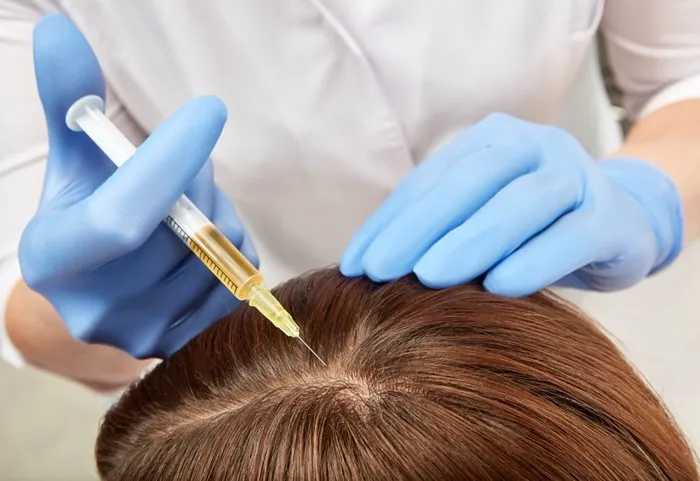Platelet – Rich Plasma (PRP) has become a cornerstone in the fields of hair restoration, orthopedics, and aesthetic medicine. Central to its effectiveness is the concentration of platelets within the plasma. The question of what constitutes the best concentration for PRP is complex, as it depends on various factors, including the specific medical condition being treated, individual patient characteristics, and the desired therapeutic outcome.
Understanding PRP Concentration
PRP concentration is typically expressed as the number of platelets per microliter (µL) of plasma. In normal blood, the platelet count ranges from 150,000 to 450,000 platelets/µL. PRP, by definition, contains a higher concentration of platelets. The concentration of PRP can be adjusted through the centrifugation process. By varying the speed, duration, and type of centrifuge used, medical professionals can obtain different levels of platelet concentration.
PRP Concentration in Hair Restoration
Low – Concentration PRP (2 – 3 times baseline)
Low – concentration PRP, with platelet counts approximately 2 – 3 times the normal baseline, can be effective for mild to moderate hair loss. In cases where the hair follicles are still viable but have been affected by factors such as stress or hormonal imbalances, low – concentration PRP can provide a gentle stimulation. The growth factors released by the platelets can promote the anagen (growth) phase of the hair cycle, leading to increased hair density. For example, in young individuals experiencing early – stage androgenetic alopecia, low – concentration PRP may be sufficient to reverse the initial thinning of hair.
Medium – Concentration PRP (3 – 5 times baseline)
Medium – concentration PRP, with platelet counts 3 – 5 times the normal level, is often recommended for more advanced hair loss. This concentration can stimulate dormant hair follicles and enhance the overall quality of hair. It may be particularly effective in mid – adulthood, when hair loss has become more pronounced. The increased number of platelets releases a higher amount of growth factors, which can improve blood circulation to the scalp, nourish the hair follicles, and support their growth and regeneration.
High – Concentration PRP (5 – 10 times baseline)
High – concentration PRP, with platelet counts 5 – 10 times the normal baseline, is usually reserved for severe cases of hair loss or when combined with other hair restoration procedures, such as hair transplant surgery. In these cases, the high concentration of platelets can accelerate the healing process, improve the survival rate of transplanted follicles, and enhance the overall outcome of the treatment. However, high – concentration PRP may also carry a slightly higher risk of side effects, such as inflammation at the injection site.
Ideal Platelet Concentration for PRP
Classic Definition and Recommendations
The classic definition of PRP, as established by Marx in 2001, specifies a minimum concentration of 1 million platelets per microliter (µL). This concentration is considered the threshold for effective tissue regeneration and growth factor release. However, achieving this concentration can be challenging with some PRP preparation systems.
Variability in PRP Systems
Studies have shown significant variability in the platelet concentration produced by different PRP systems. For instance, a review by the Mayo Clinic in 2019 found that only 10 out of 33 systems tested could produce PRP with a concentration of 1 million platelets/µL. Many systems actually produced platelet-poor plasma (PPP), resulting in lower efficacy.
PRP Concentration in Other Medical Applications
Orthopedic Injuries
In orthopedics, the optimal PRP concentration depends on the type and severity of the injury. For minor tendon or ligament injuries, low – to – medium – concentration PRP may be sufficient to promote healing. The growth factors in PRP can stimulate the repair of damaged tissues, reduce inflammation, and accelerate the recovery process. In more severe injuries, such as large – scale tendon ruptures or cartilage damage, high – concentration PRP may be required to provide a more robust healing response.
Aesthetic Medicine
In aesthetic medicine, PRP is often used for skin rejuvenation. Low – to – medium – concentration PRP is typically used to improve skin texture, reduce fine lines and wrinkles, and enhance skin tone. The growth factors in PRP can stimulate the production of collagen and elastin, two proteins that are essential for maintaining the elasticity and firmness of the skin.
Factors Influencing the Optimal PRP Concentration
Patient – Specific Factors
Individual patient characteristics, such as age, overall health, and the underlying cause of the medical condition, can influence the optimal PRP concentration. For example, older patients may have a reduced ability to respond to high – concentration PRP, and a lower concentration may be more appropriate. Patients with underlying health conditions, such as diabetes or autoimmune disorders, may also require a different PRP concentration to minimize the risk of complications.
Treatment Goals
The specific treatment goals also play a crucial role in determining the optimal PRP concentration. If the goal is to achieve a quick and significant improvement in a severe condition, high – concentration PRP may be necessary. However, if the goal is to provide a long – term, gentle treatment for a milder condition, low – or medium – concentration PRP may be more suitable.
Conclusion
Determining the best concentration for PRP is a complex process that requires careful consideration of multiple factors. Whether it is for hair restoration, orthopedic injuries, or aesthetic medicine, the optimal PRP concentration should be tailored to the individual patient and the specific medical condition. By staying informed about the latest research and best practices, medical professionals can make informed decisions and provide the most effective PRP treatment for their patients.
Related topics:
- Blood Pressure Medications & Hair Loss: Is There a Connection?
- The Cost of PRP for Hair Loss: A Comprehensive Guide
- How Much Effective Is PRP for Hair Loss: What You Need To Know


